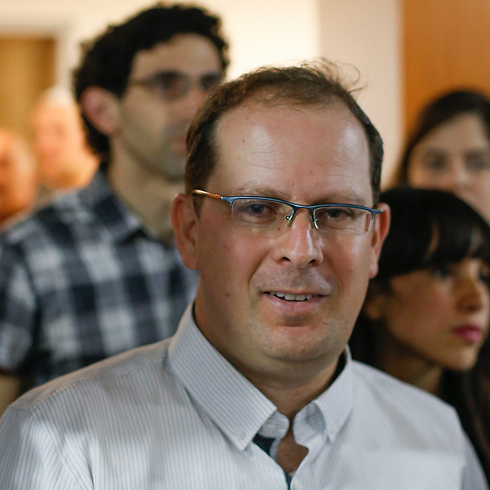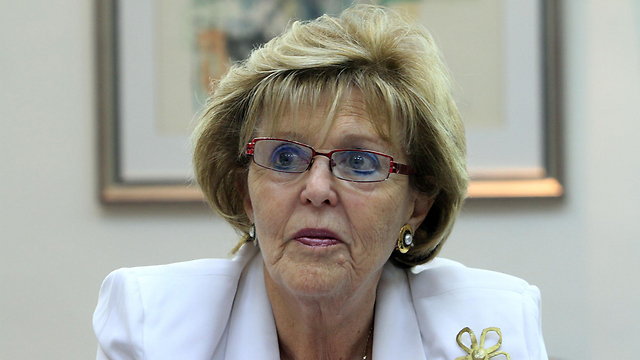Israeli jurists have become in recent years the world’s most in-demand lecturers on all facets of handling terrorism; after a decade of preparation, the draft for a comprehensive anti-terrorism bill is ready
While Israel’s exports are currently facing difficulties, such as boycotts and competition, one field of exports is matchless, and global demand for it only continues to grow: the war on terror.
Last week, Deputy Attorney General Raz Nazari completed the drafting of a bill to combat terrorism. This task was remarkably complex, as the facts did not cease changing, the challenges and requirements kept being modified, and time and time again, Nazari had to update the wording to adapt to the current situation and the recent wave of terrorism. For this reason, the work of drafting took no less than a decade and included hundreds of meetings with security officials, legislative and comparative judicial reviews, and 30 meetings of the Knesset’s Constitution, Law and Justice Committee.
After examining the sweeping laws enacted in the USA following the terrorist attacks of September 11, 2001, Israeli legal officials opted for more balanced legislation. One of the key innovations in the bill is the recognition of the need to deal not only with terrorism itself, but also with so-called “terrorism support,” which includes those who support and incite to terrorism.

For example, the new bill sets that, contrary to past laws, calls to carry out a terrorist attack will be considered an offense even if there was no “substantial probability” that an act of terrorism would be committed following the call. Further, the bill sets stricter punishments for crimes related to terrorism, expands the circle of transgressors to include anyone who trains, aids, and provides resources to terrorists, or even identifies with them publicly, and limits sentence-reductions for those convicted of terrorism.
Immediately after the final debate on the draft in the Constitution, Law and Justice Committee finished, Nazari made himself available to receive delegations of prosecutors from the US and France who had come to Israel to hear more about the legislative process, the dilemmas facing the Israeli Ministry of Justice, and the solutions found.

Nazari explained to all that the purpose of the new law is to provide the state with the tools necessary to deal with terrorism in a new world that is more technological and internet-based. He detailed for them the need to deal with sophisticated money transfers and with online incitement, and, with those challenges, organizing the use of sophisticated tracking mechanisms that may violate privacy.
Other senior legal officials, notably Supreme Court Presidents Emeriti Aharon Barak and Dorit Beinisch, are very desirable speakers in all matters relating to the legal handling of terrorism. If, in the past, the demand was mainly from the United States, in recent years, the subject has become more and more du jour in Europe, as well, which has itself become the target of many severe attacks.
A fortnight ago, Supreme Court Justice Emerita Edna Arbel gave a lecture at a judges’ conference dealing with the legal challenges in handling terrorism. According to Arbel, the technological revolution, which includes multi-channel television, mobile phones and especially the internet, challenges anyone who tries to fight terrorism.

“The battlefield has changed, and so has the shape of the battle,” she said. “The world of classical terrorism as we knew it has changed dramatically, and today, the scene of the crime is no longer the rally in the square or a procession with flags, but rather a post on social media. Today, the voice of incitement is spread to a large audience through tapping on a mobile phone or typing on a computer.”
Arbel explained that it is impossible to prevent posting online, and any attempt by security forces to do will conflict with the question of violating privacy. “There is no escaping the conclusion that law enforcement officials will always be one step—or more accurately, several steps—behind the world of terrorism,” she said. She added that adapting the judicial system to changes and enforcement processes takes too long and requires cooperation amongst states and international organizations to create a common language for dealing with issues.
Arbel stated that the Israeli Supreme Court based the legal fight against terrorism on three principles: action within the limits of international and Israeli law, while using the tools approved by the court, such as “targeted eliminations” or “door knocking;” balancing the need to preserve security against the need to preserve human rights, by virtue of which torture in interrogations and kidnapping “bargaining chips” have both been forbidden; and ensuring the right of access to the Supreme Court for anyone claiming human rights violations.
As reported by Ynetnews
